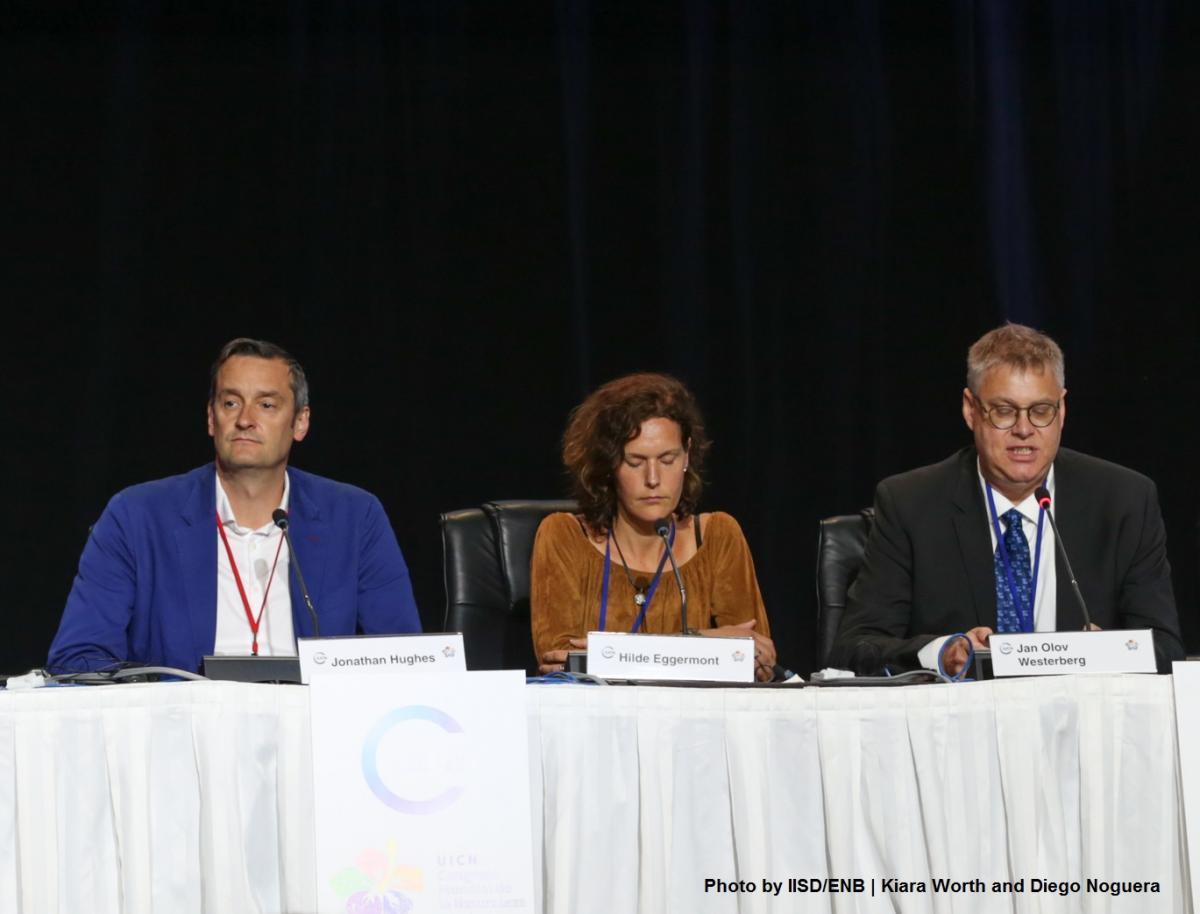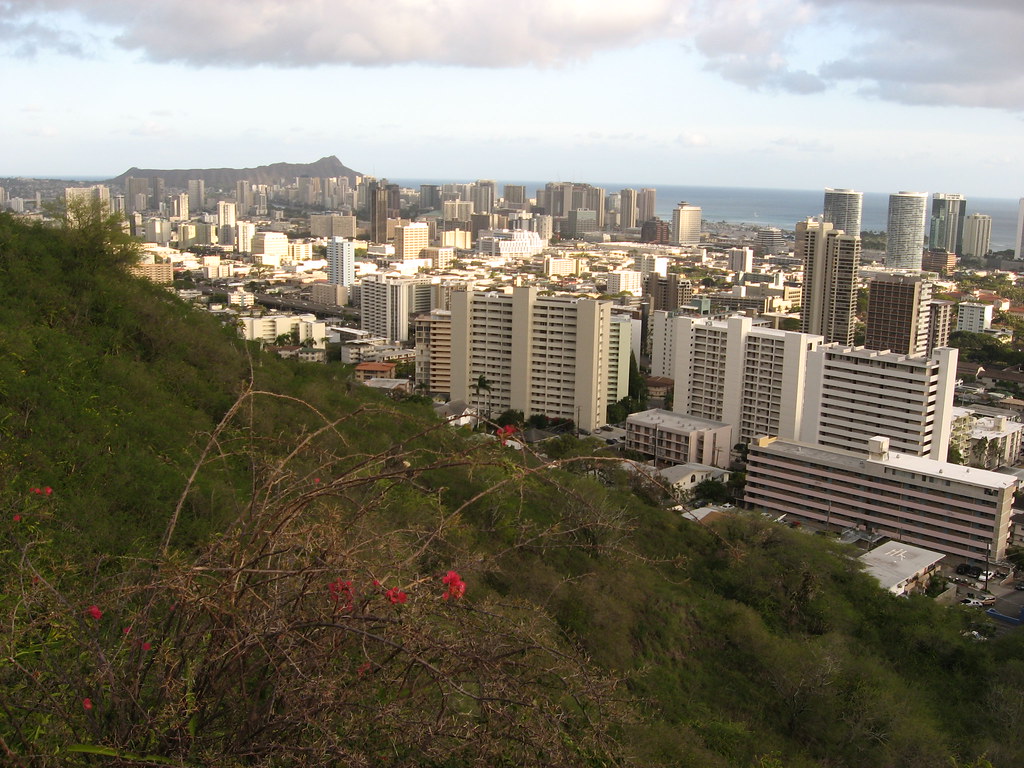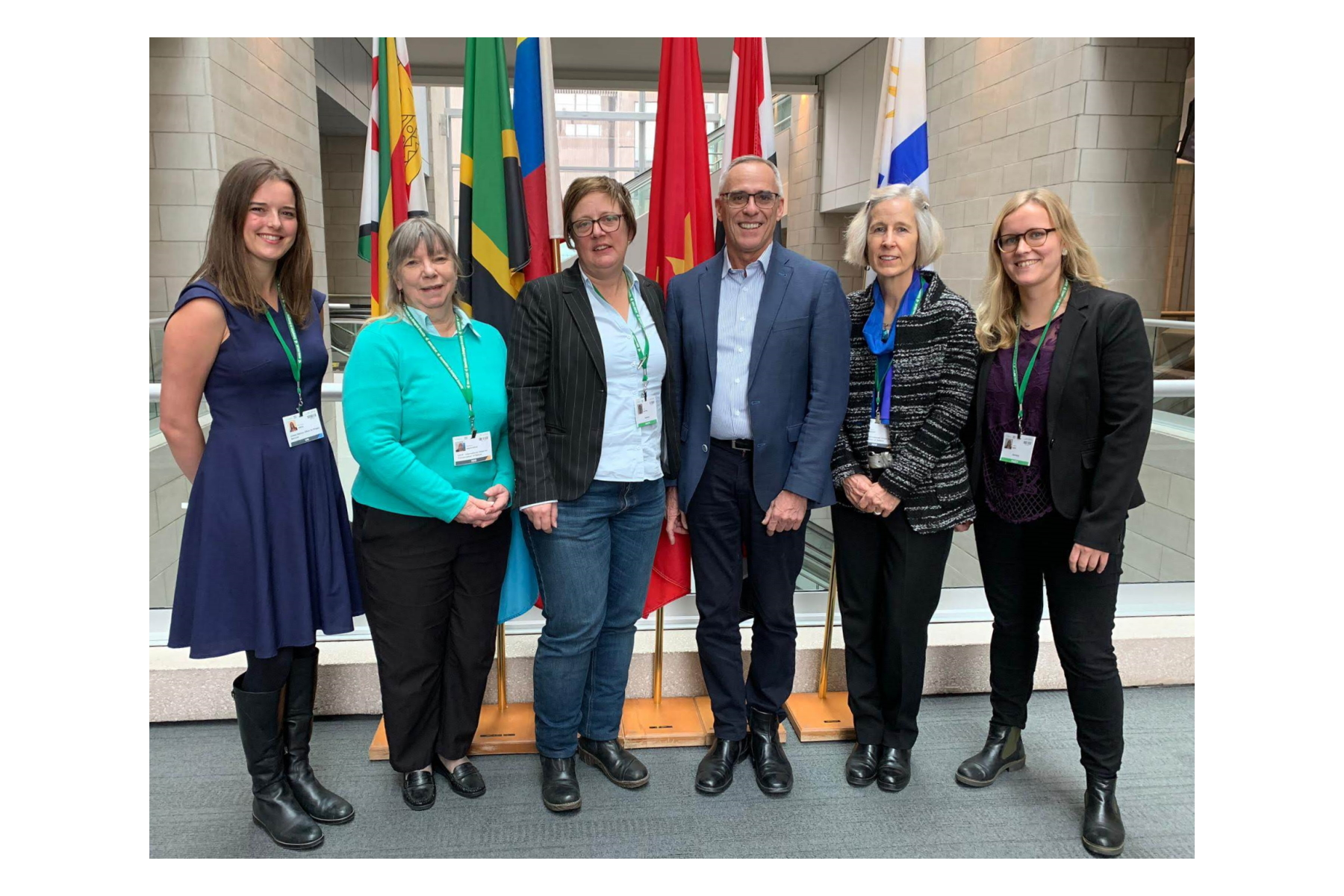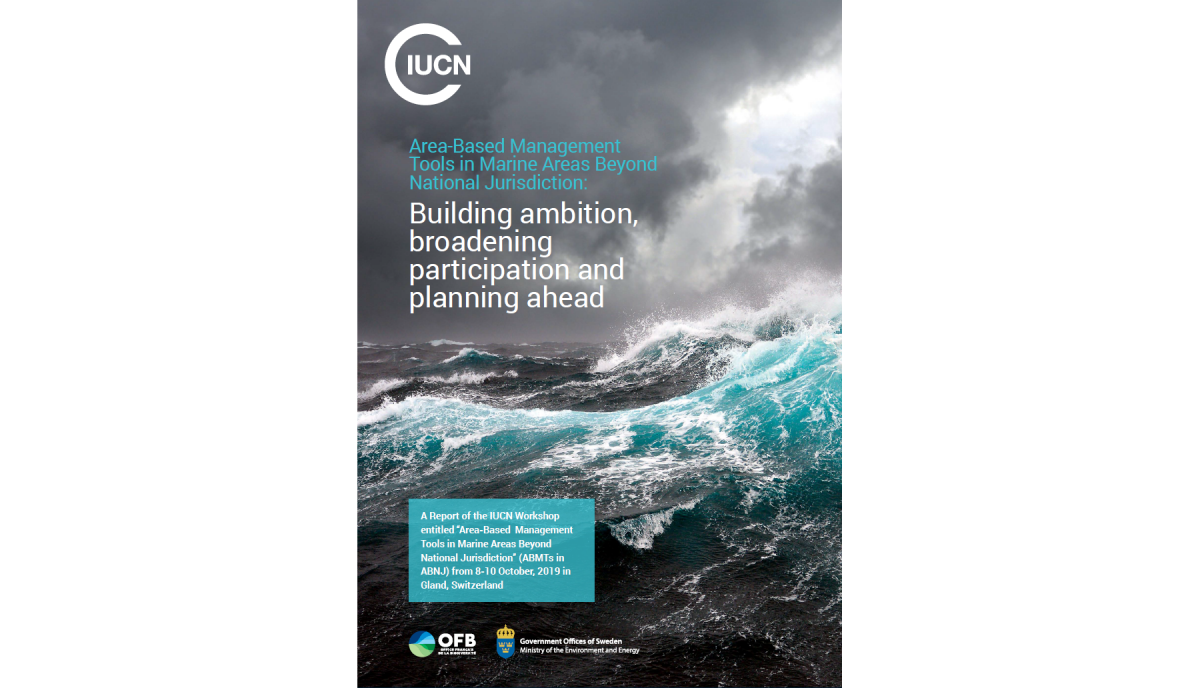IUCN Members elect new Councillors to represent the European region
IUCN Members elected Councillors to represent the European region during the IUCN World Conservation Congress 2016, held in Hawai’i from 1 to 10 September. Members also elected the President, Treasurer, Commission Chairs and remaining Regional Councillors to represent a total of eight global regions for the period 2016-2020.

Photo: IISD/ENB - Kiara Worth and Diego Noguera
Hilde Eggermont, coordinator of the Belgian Biodiversity Platform; Jan Olov Westerberg, Director General of the Swedish Museum of Natural History; Jonathan Hughes, Chief Executive of the Scottish Wildlife Trust and Michael Hošek, Vice President of the EUROPARC Federation and coordinator of its Central and Eastern Europe section are the elected councillors based in the European programmatic region (EURO).
The East Europe, North and Central Asia programmatic region (ECARO) will be represented by Rustam Sagitov, Associate Professor of the Faculty of Biology, St. Petersburg State University and Tamar Pataridze, Project Manager of Sustainable Development Centre – Remissia.
“I aim to take up actions to engage a broader constituency for conservation – and especially reinforce engagement of young people making sure they find their place in the new programme”, Hilde Eggermont, said on some of her goals as newly appointed IUCN Councillor. Based on her science-policy interfacing background Hilde understands the challenges in achieving biodiversity considerations into policies and plans. “I aim to actively increase the visibility and impact of IUCN’s knowledge networks and key tools to influence policy agendas at all relevant levels, and especially within the European context. I believe that IUCN has the leverage to mobilise the right actors and better integrate biodiversity across sectors and I am highly motivated and dedicated to contribute to this challenge.”
Jonathan Hughes was re-elected to the IUCN Council in Hawai’i: “I look forward to harnessing my second term on IUCN Council to provide leadership on the critical environmental challenges we face at both global and European levels.” Jonathan is keen to make progress on the re-design of the global system of agriculture and food distribution. “We simply will not hit our climate change emissions reductions targets, or reverse biodiversity loss, without fundamentally changing the way we farm and the way we distribute and consume food. With political will, new technology and, most importantly, the deployment of nature-based solutions we can solve these problems as a global community. As I said at the Congress, never before has the IUCN been more relevant and important to the world.”
“IUCN, our union, has a most important role to play in these times when we really are at a crossroad for humanity. Our strength lies in our diverseness, and here is also one of our challenges, said Jan Olov Westerberg on the significance of being elected. “I hope to bring my experience in governance of large and complex organisations to the IUCN Council, thus continue to support the ongoing work of building up capacity in the national committees in order to strengthen contacts between council, secretariat, regional offices and membership.”
Michael Hošek is another re-elected IUCN Councillor and would like to serve as a member of the Policy and Programme Committee. Predominantly focused on South East Europe and Central Asia, Michael works to support the transitional process of EU candidates and associated countries into the EU standards of nature conservation. “To strengthen the position of IUCN in these countries is a priority for me because capacity development is important for them and their transition provides a great opportunity to help them significantly (guide their development in conservation).”
“We are proud to have these senior representatives of the biodiversity community in Europe as IUCN Councillors in the European programmatic region of IUCN and I look forward to work closely with all of them to achieve the targets in the Global and European Programme,” said Luc Bas, Director of IUCN’s European Regional Office on the elected Councillors.
The IUCN Council acts as the principle governing body of IUCN between the World Conservation Congress, setting strategic direction and policy guidance for the work of the Union. The Council provides oversight and guidance on the performance of the Union, fulfils its responsibilities to its Members and supports the Director General in communicating IUCN’s objectives, policy and Programme to the community at large.
An additional, twenty-two Regional Councillors were elected from the Africa, Meso and South America, North America and the Caribbean, South and East Asia, West Asia, and Oceania. IUCN’s current standing President, Zhang Xinsheng, was re-elected for a second term.
The IUCN Congress, is held every four years and is the world’s largest and most democratic conservation forum. Over the course of ten dates, Members discuss and vote on key conservation and environment issues as well as electing leaders. With over 10,000 participants from 192 countries, this year marked the largest Congress to date.



